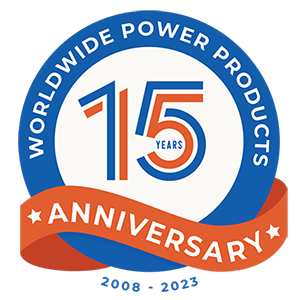Noise Pollution in Diesel Generators
Benefits of using diesel generators may include fuel savings, reliability, lower maintenance costs, and an extended lifespan. These advantages make it easy to understand why diesel has become popular for the main or backup source of industrial, commercial, and even home power generation. While durability, power output, and fuel consumption may factor into your choice of generators, you also need to consider how loud your equipment will sound and steps that you can take to reduce the noise level and avoid noise pollution.
Concerns over Noise Levels from Diesel Generators
While diesel generators typically get a bad for the environmental impact (not all warranted), noise pollution is rarely included in the criticism. You will find diesel generators with noise ratings measured in decibels (dBA). These examples can help you understand how a couple of different generator sizes could sound on your property:
- A fairly small generator could have an output of 50 kW and might generate as much noise as city traffic, or about 85 decibels.
- In contrast, 1,500 kW models may emit about 105 decibels, which you could compare to the sound of a jet airplane flying about 1,000 feet over your head.
In some cases, a high level of noise pollution may not just annoy you, your employees, and your neighbors. According to the Occupational Safety and Health Administration (OSHA), constant exposure to loud noises will pose a serious health hazard because it can cause hearing loss over time.
Complying With OSHA Standards at Work
Failure to comply with regulations may also make companies vulnerable to government penalties. For example, the basic OSHA noise control standard works out to an average noise level of about 90 decibels for an eight-hour day. Generally, this means employees may be exposed to louder noises at times if they also enjoy a quieter environment at other times. This OSHA standard can also vary by industry.
Local Noise Ordinances for Private Property
Typically, homeowners may rely upon diesel generators as backup power sources in case of power outages. Cities and counties may also have their own rules about acceptable noise levels, and they usually measure the level of noise at property lines. If you wonder if your own generator might bother your neighbors, you may mitigate the issue by simply moving the generator as far away from your property lines as possible.
Noise Reduction for Diesel Generators
You should not base your expectations for modern generators on the noise levels of diesel engines from several years ago. Typically, noise ratings increase along with the power and size of the generator. However, you don’t always have to sacrifice power to reduce the noise level.
If you need to focus on noise reduction when you run diesel generators, consider some of the most effective solutions:
Built-In Noise Control
Today’s manufacturers have produced quieter models through some improvements for internal combustion controls, internal combustion tech, and fuel injection. Newer designs focus on smooth-running engines and vibration reduction.
Sound-Reduction Enclosures
Some of the same companies that produce diesel generators also make enclosures that help dampen sound. The best of these can reduce noise levels by as much as 40 decibels. This would easily bring most generators well within noise control standards. You have to be careful about using enclosures because of the risk of fumes and exhaust, so generator companies design these for safety. You also get the added benefit of keeping your generator sheltered from the environment.
Diesel Generator Mufflers and Silencers
For generators, a silencer does the same job that a muffler handles for cars. Both of these devices help lower emissions and noise levels. In addition to noise reduction, some silencers can also help filter emissions for better environmental control and to stay in compliance with local or EPA regulations. You can even find silencers that will also help recover heat that you can use in a number of applications. The most powerful silencers can reduce outside noise even more than an enclosure.
You can find different kinds of silencers, but they will fall into three basic types:
- Reactive: Three chambers help trap noise. Reactive silencers work best for noise reduction in the low- or mid-range sounds.
- Absorptive: These silencers usually use fiberglass insulation to absorb high-frequency sounds.
- Combination: As the name implies, a combination silencer will combine the designs of the absorptive and reactive silencer to muffle a wide range of sounds.
A diesel generator silencer will also come with a sound rating. As with generators this rating is expressed in decibels. In this case, they are also divided into various grades. Manufacturers base these ratings upon a range of decibels the silencer can reduce:
- Industrial: 15 to 20
- Residential: 20 to 25
- Critical: 25 to 32
- Super Critical: 30 to 38
- Hospital: 35 to 42
- Hospital Plus: 35 to 50
- Extreme: 40 to 55
- Super Extreme: 45 to 60
Of course, every manufacturer won’t produce every style of silencer in every grade. They typically focus production on the grade and style combinations that customers demand the most. You do have to account for the fact that silencers could restrict airflow to some degree and may impact the generator’s performance. The best generators have been developed to minimize interference and maximize performance.
Read our full guide on generator silencer grades and find out if you need a silencer to dampen the sound of your generator.
Do You Have More Questions About Diesel Generators?
At Worldwide Power Products, we sell, rent, and provide full services for diesel generators, gas generators and accessories. If you have concerns about noise ratings, reducing noise pollution, or any topic related to generators, simply contact us today or visit us in Northwest Houston. We can provide you with the best generator for your business or home.











